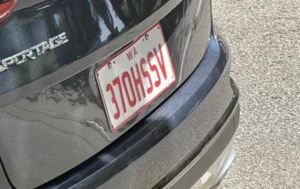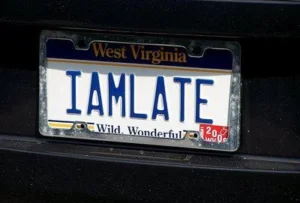

The combination of letters and numbers – 370HSSV – seemed harmless enough initially. However, upon closer inspection or when flipped upside down, it revealed the word ‘ahe’.

Social media users swiftly caught on to the ingenuity of the disguise, flooding the post with thousands of comments and shares.
Some lauded the driver’s cleverness, while others found amusement in the unexpected find.
The driver’s crafty ploy to evade detection by transport officials in Western Australia adds an extra layer of intrigue.
Despite the rejection of nearly 1000 applications for personalized plates last year due to offensive content, this particular plate managed to slip through undetected.

Rejected plates like SAUC3D and RAMP4GE hint at offensive or inappropriate content, while others like F4K3 T4XI and BUYAGRAM suggest illicit activities.
Interestingly, personalized plates are more popular among men, but not all applications pass the scrutiny of the review group responsible for assessing their appropriateness.
This viral incident highlights the influence of social media in turning ordinary moments into global sensations.
What started as a clever disguise on a license plate has captivated thousands, showcasing creativity and humor in unexpected ways.

As the digital age blurs the boundaries between the real and virtual worlds, incidents like these underscore the unpredictable nature of online culture.




